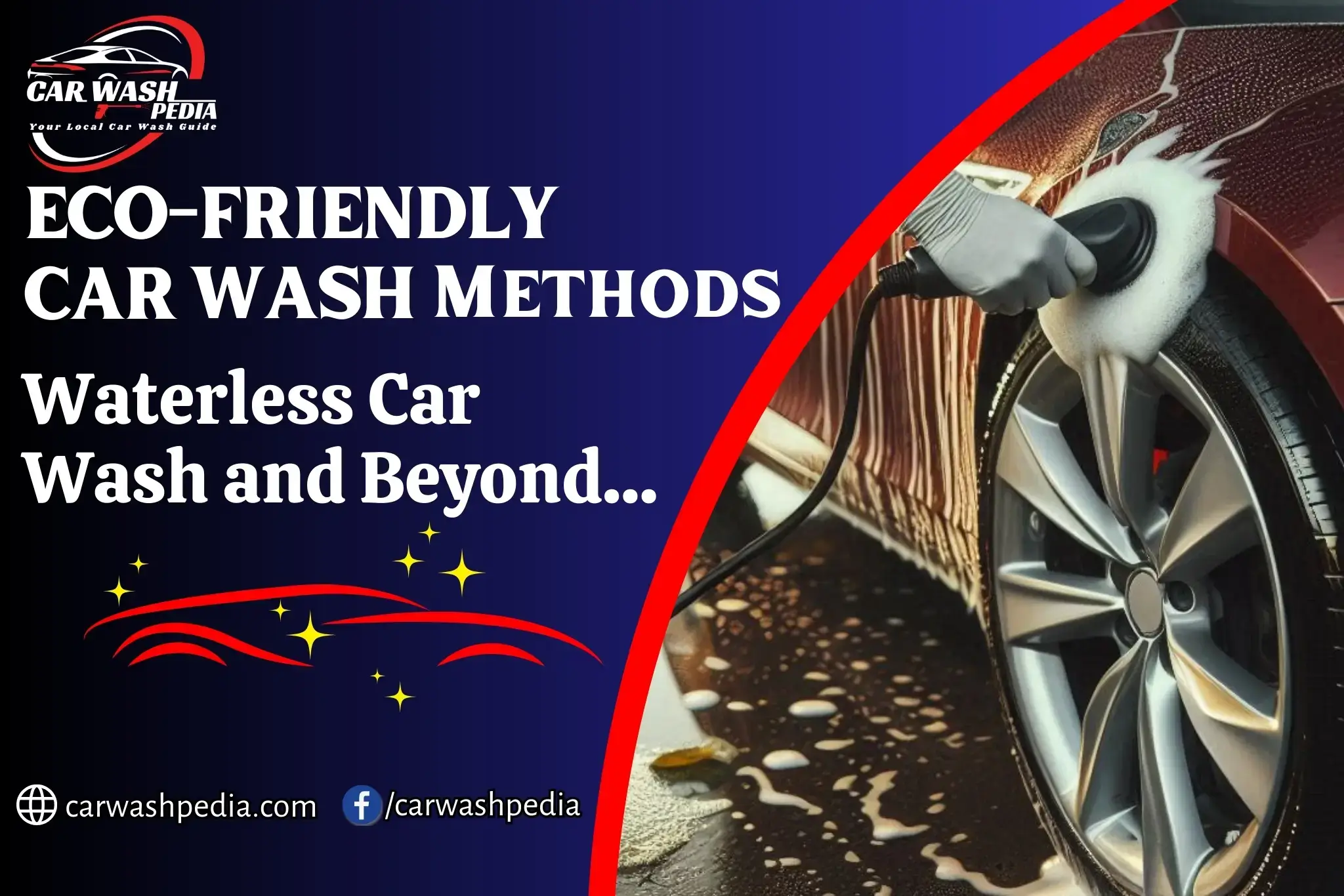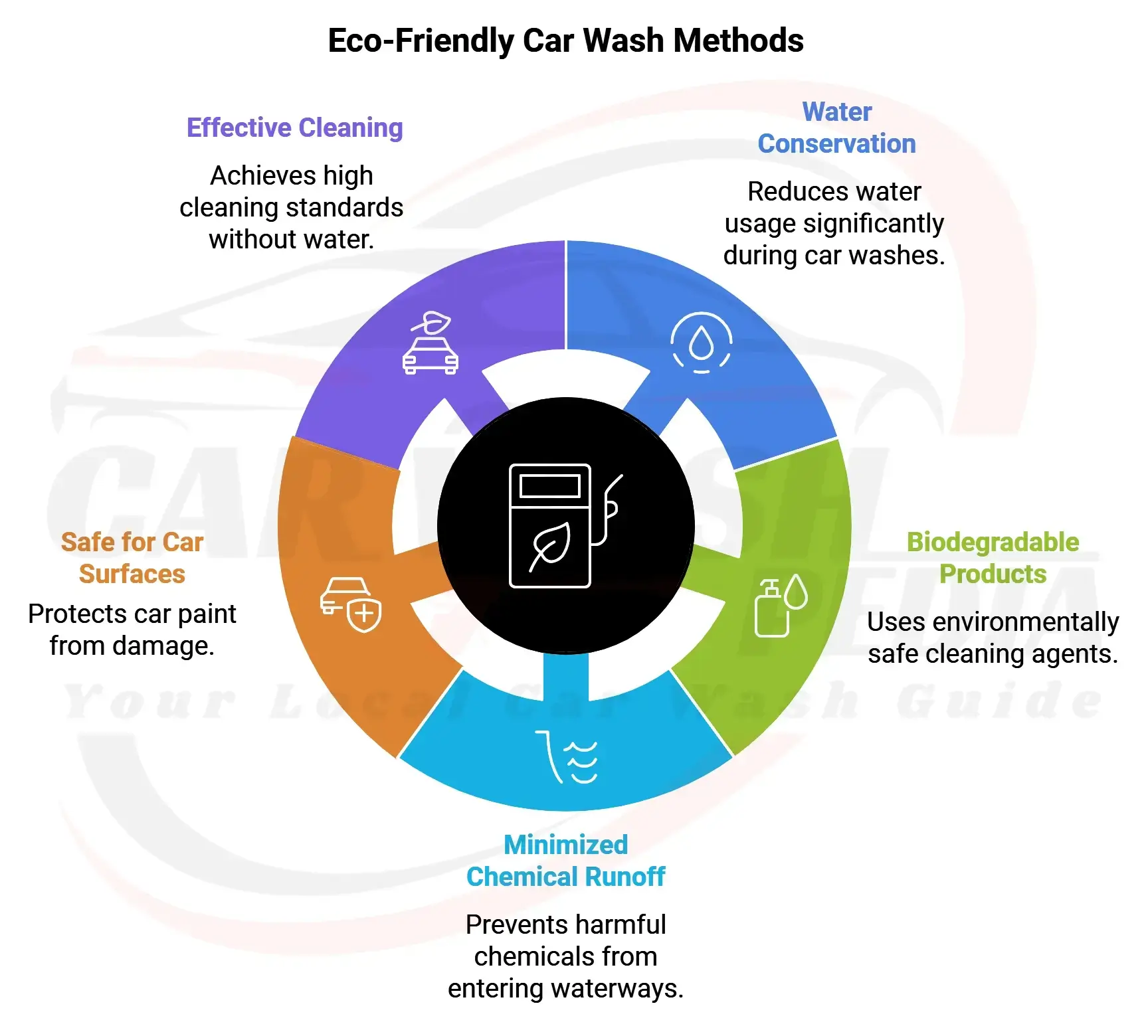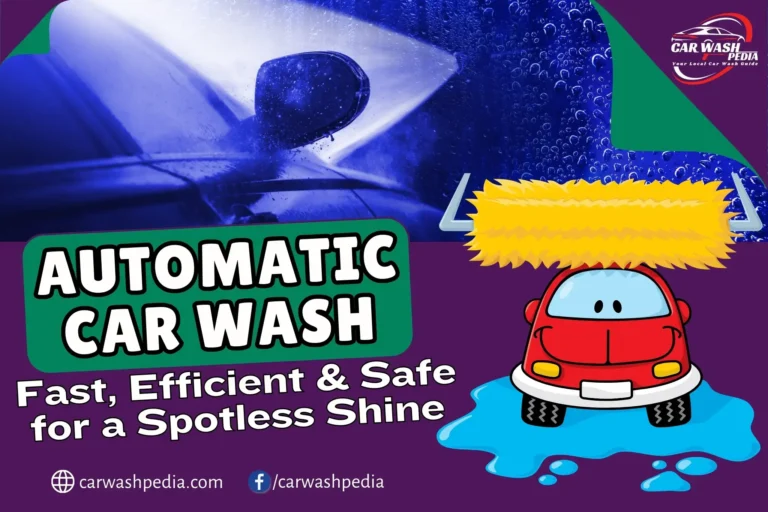Eco-Friendly Car Wash: Waterless Car Wash and Beyond

To kick off, let’s explore eco-friendly car wash methods, why they are gaining popularity, and how they benefit both your vehicle and the planet.
What Is an Eco-Friendly Car Wash?
Eco-friendly car wash is designed to reduce environmental impact, cutting down on water usage and limiting harmful chemicals that pollute our ecosystems. In the U.S., eco-conscious choices are becoming more popular as people look for sustainable alternatives in their daily lives.
Definition and Purpose of Eco-Friendly Car Wash
Eco-friendly car washing focuses on reducing water consumption, using biodegradable products, and minimizing runoff into local waterways. The goal is to keep your car clean without the waste or harm associated with traditional washing methods. These methods are safe for car surfaces and effective in cleaning, often using advanced products like waterless cleaners and biodegradable soaps.
Growing Importance of Sustainability in Car Care
With climate awareness on the rise, sustainability in car maintenance is now a priority for many. Traditional car washes can use between 30 to 50 gallons of water per wash, often with harsh chemicals that flow into our storm drains and affect the environment. Eco-friendly methods address these issues by conserving water and using environmentally safe products, making car care better for our shared planet.
Why Go Eco-Friendly?
Choosing eco-friendly car washes comes with plenty of benefits, from reducing your environmental footprint to potentially saving money over time.
Environmental Impact of Traditional Car Washes
Conventional car washes often waste large amounts of water and release harmful chemicals. These washes typically send soap, wax, and pollutants into storm drains, where they enter natural water systems. Choosing an eco-friendly car wash avoids this damage, helping to protect rivers, lakes, and oceans.
Benefits of Eco-Friendly Car Wash Methods for Car Owners and the Planet
Eco-friendly car washes conserve water, which is especially crucial in areas of the U.S. facing droughts or water restrictions. They also reduce the risk of damage to your car’s paint due to harsh chemicals, which can be a problem with standard methods. Plus, by using biodegradable products, you contribute to healthier ecosystems, supporting a cleaner environment for future generations.
Embracing eco-friendly car wash methods is a small but impactful way to care for your car while caring for the planet.

Waterless Car Wash: A Deep Dive
Waterless car washes are transforming the way people clean their cars, especially in areas of the U.S. facing water shortages. Here, we will break down what a waterless car wash is, the types of products available, and the pros and cons of this eco-friendly car care method.
What Is a Waterless Car Wash?
A waterless car wash is a cleaning method that uses specially designed sprays or foams to lift dirt and grime from your car’s surface – no rinsing required. This approach uses no water at all, making it a highly sustainable option.
Explanation of Waterless Car Wash Solutions as an Eco-Friendly Car Wash Option
Waterless car wash products are engineered to work without water, ideal for people who want a quick, environmentally friendly wash. The formula bonds with dirt particles, allowing you to simply wipe away grime without the mess and waste of traditional car washing.
How Waterless Formulas Lift Dirt While Protecting Paint
Waterless car wash solutions often include lubricating agents and protectants that surround dirt particles, lifting them off the paint. This process is gentle and safe on car surfaces, often adding a layer of shine while preserving the paint’s integrity.
Types of Waterless Car Wash Products
There is a range of waterless car wash products on the market, each designed to make car cleaning easy, safe, and sustainable.
Sprays and Foams: Varieties, Effectiveness, and Ease of Use
Waterless car wash sprays are popular for their convenience and ease of use. You just spray the product on the car, wipe it down with a microfiber cloth, and you are done. Foams are another option that work similarly, although they may require a little more wiping to achieve a streak-free finish. Both types are compact and easy to store in your car, making them ideal for on-the-go cleanups.
Eco-Friendly Ingredients: Common, Safe Cleaning Agents
Many waterless car wash products are made with biodegradable ingredients like natural oils and surfactants, which are gentle on your car’s surface and safe for the environment. These eco-friendly ingredients are typically free of harsh chemicals, so they would not harm local waterways or damage your car’s paint.
Pros and Cons of Waterless Car Washes
Waterless car washes offer several benefits, though they may not be the best solution for every cleaning need.
Pros: Water-Saving, Convenience, Minimal Runoff
- Water-saving: The biggest advantage is that waterless washes save gallons of water, making them perfect for eco-conscious car owners.
- Convenience: Waterless wash products are quick to use, do not require hoses or buckets, and can be done just about anywhere.
- Minimal runoff: Since no water is used, there is little to no runoff that could carry pollutants into drains and waterways.
Cons: Best for Light Dirt, May Require Microfiber Cloths for Effectiveness
- Best for light dirt: Waterless products are ideal for light dirt and dust. For heavily soiled cars, traditional methods may still be needed.
- Microfiber cloths needed: For the best results, you will need quality microfiber cloths to remove dirt without scratching. This adds a bit of expense but is key to making the most of a waterless wash.
Waterless car washes provide a practical, eco-friendly car cleaning method that is effective for day-to-day dust and light grime, offering a sustainable solution to keep your car looking its best.
Rinseless Car Wash: A Low-Water Option
Rinseless car washing is an efficient, water-saving alternative to traditional car washing. It is especially helpful for those who want to keep their cars clean without needing a hose or excessive water.
Understanding Rinseless Car Washing
A rinseless car wash uses a specially formulated solution that allows you to wash your car without rinsing it afterward. This method is popular in areas with water restrictions or for those who want an efficient, eco-friendly wash at home.
How Rinseless Washes Require Minimal Water for Effective Cleaning
Unlike traditional washes, rinseless methods only require a small amount of water. You mix a concentrated solution with water in a bucket, and after wiping down each section of your car, there is no need to rinse it off. This saves both time and water, making it ideal for people who want an eco-friendly wash.
Overview of Application Process (Bucket Wash vs Full Rinse)
Rinseless washing involves using a bucket filled with a cleaning solution, dipping a microfiber cloth in it, and washing one panel of the car at a time. After each section, you wipe it clean with a dry microfiber towel, skipping the usual rinse step. This method is simpler than a traditional wash and requires only a fraction of the water.
Benefits of Rinseless Washing for Car Owners
Rinseless car washing is both practical and environmentally friendly. Here are some benefits that make it an appealing choice:
Water Conservation
Rinseless washing can save tens of gallons per wash, making it a great option for eco-conscious car owners, especially in drought-prone areas of the USA.
Cost-Effectiveness
Rinseless wash products often last for many uses, and with minimal water and supplies needed, this method can be highly cost-effective over time.
Reduced Cleanup
With less water runoff, there is minimal mess, meaning you can wash your car in your driveway or garage without worrying about water pooling or cleaning up afterward.
Suitable Climates and Seasons for Optimal Results
Rinseless washing is ideal in colder climates where using water hoses may be impractical. It is also great for winter in areas prone to water restrictions, as well as hot, dry regions where traditional washing is less accessible.
Best Rinseless Car Wash Products Available in the USA
Many rinseless wash products offer high-quality cleaning while remaining environmentally friendly. Here are some top brands in the USA:
Optimum No Rinse (ONR)
ONR is a popular rinseless wash known for its cleaning power and eco-friendly formula. It is biodegradable and gentle on paint, providing a polished finish with minimal effort.
Adam’s Quick Waterless Detalining Spray
Adam’s Polishes offers a highly concentrated formula that works well for both rinseless and waterless washing and detailing. This product is effective on light dirt and can be mixed at various concentrations for versatile use.
Meguiar’s Ultimate Waterless Wash and Wax
Known for its efficiency, this product leaves a shine on the car’s surface and is safe on all types of paint. It is user-friendly and budget-friendly, a favorite for quick, eco-conscious car wash and car detailing.
Choosing a rinseless wash product can provide excellent results while conserving water and being gentler on the environment. This low-water method is a practical solution for people across the U.S. looking to reduce their water footprint without sacrificing a clean, well-maintained car.
Eco-Friendly Car Wash Soaps and Cleaners
Using eco-friendly car wash soaps and cleaners is a simple yet impactful step toward sustainable car care. These products are designed to clean effectively while being gentle on the environment, helping preserve the local ecosystem.
Choosing Biodegradable, Non-Toxic Car Wash Soaps
Not all car wash soaps are created equal, especially when it comes to environmental impact. Selecting biodegradable and non-toxic soaps ensures that cleaning your car does not harm the planet.
Ingredients to Look For: Plant-Based and Phosphate-Free Options
When shopping for eco-friendly car wash soaps, look for labels indicating plant-based ingredients. Phosphate-free soaps are a top choice, as phosphates can harm aquatic life by depleting oxygen in waterways. Plant-based cleaners use naturally derived ingredients, like coconut or citrus oils, that clean well without damaging the ecosystem.
How These Cleaners Benefit Local Waterways and Wildlife
Traditional car wash soaps often contain chemicals that wash into storm drains and rivers, negatively impacting aquatic life. Biodegradable soaps break down naturally and are less likely to disrupt local ecosystems. By choosing eco-friendly products, you are helping keep harmful chemicals out of rivers, lakes, and oceans.
Top Eco-Friendly Car Wash Soap Brands in the USA
Many car wash brands offer high-quality, eco-friendly options specifically designed to reduce environmental impact while still delivering a spotless shine. Here are some popular choices among eco-conscious car owners in the USA:
Chemical Guys EcoSmart Waterless Car Wash and Wax
This waterless car wash formula is eco-friendly and offers a clean, shiny finish without needing a hose. It is biodegradable, easy to apply, and convenient for eco-conscious drivers.
Aero Cosmetics Waterless Wash Wax Kit
Known for its eco-friendly formula, Aero Cosmetics is biodegradable, making it safe for use around plants and waterways. It is a favorite among eco-friendly car owners for its effectiveness and convenience.
Mothers California Gold Waterless Wash and Wax
While gentle on the car’s paint, this soap is also free of harsh chemicals and phosphates. It is an environmentally conscious choice that provides a rich lather and a polished finish.
Using Concentrated Cleaners for Reduced Waste
Concentrated car wash cleaners are another excellent option for eco-friendly car washing, as they reduce plastic usage and minimize chemical waste.
How Concentrated Formulas Reduce Plastic and Chemical Waste
Concentrates allow you to dilute the solution as needed, often yielding multiple washes from a single bottle. This reduces the need for excessive packaging, cutting down on plastic waste. Additionally, since you are using a smaller amount of soap per wash, you are releasing fewer chemicals into the environment.
By switching to eco-friendly car wash soaps and cleaners, you are protecting your car and playing a part in preserving the environment. Choosing these sustainable products is an easy way to enjoy a cleaner car with a cleaner conscience.
DIY Eco-Friendly Car Wash Tips
Taking a DIY approach to car washing not only saves money but also allows you to control what goes into your cleaning products. This section explores practical, eco-friendly ways to wash your car at home using natural ingredients and sustainable tools.
Homemade Car Wash Solutions
Homemade car wash solutions are effective, affordable, and safe for the environment. Most DIY solutions rely on common household ingredients that clean without introducing harsh chemicals into the ecosystem.
Common Ingredients: Vinegar, Baking Soda, and Natural Soap
Vinegar, baking soda, and natural soaps are powerful cleaning agents found in most households. Vinegar effectively removes dirt and grime, while baking soda tackles tough stains. Natural soap, free from phosphates and chemicals, provides a gentle yet effective cleaning base that is safe for your car’s paint and would not harm waterways.
Recipes for Safe, Eco-Friendly DIY Car Wash Solutions
Try mixing one cup of white vinegar with three cups of water for a simple glass cleaner. For the car’s exterior, blend a tablespoon of baking soda with water and a dash of natural soap for a cleaner that is tough on dirt but gentle on the paint. These homemade solutions offer a simple, eco-conscious way to keep your car spotless.
Using Reusable Cloths and Tools
Switching to reusable car cleaning tools reduces waste and cuts costs. High-quality reusable cloths, like microfiber towels, and durable sponges make a significant difference in both the cleaning experience and environmental impact.
Benefits of Microfiber Towels and Reusable Sponges
Microfiber towels are ideal for car washing. They are gentle, super absorbent, and help prevent scratches. Unlike disposable paper towels, microfiber cloth is reusable, reducing waste. High-quality sponges last through multiple washes and are less likely to wear down, making them a reliable tool in your eco-friendly car wash routine.
Tips on Proper Washing and Care for Reusable Car Cleaning Tools
To get the most from reusable tools, wash them after each use to remove any trapped dirt or residue. Avoid harsh detergents; instead, use gentle, eco-friendly soaps. Air-dry microfiber towels to preserve their fibers and keep them ready for the next car wash. By maintaining your tools, you will ensure they last longer and work effectively.
Eco-Friendly Car Detailing Tips
Eco-friendly car detailing goes beyond a simple wash to cover tires, glass, and the car’s interior without using harmful chemicals. Here are some effective, sustainable methods:
Safe Methods for Tire, Glass, and Interior Cleaning
For tires, a mix of vinegar and water works well to remove grime. A bit of baking soda can help with any tougher spots. For windows, a simple vinegar-water spray cleans glass without streaks, and for interior surfaces, a mix of olive oil and vinegar can leave dashboards clean and shiny. Each of these solutions provides a thorough clean without harsh chemicals, making it better for your car and the environment.
Incorporating these DIY eco-friendly car wash tips into your routine not only saves money but also reduces your environmental footprint. With a few household ingredients and sustainable tools, you can enjoy a sparkling clean car with minimal impact on the planet.
Mobile Eco-Friendly Car Wash Services
For car owners who want to reduce their environmental footprint while enjoying a clean vehicle, mobile eco-friendly car wash services provide a perfect balance of convenience and sustainability. This section explores how mobile services can save water, reduce pollution, and make life easier for busy drivers.
How Mobile Services Contribute to Sustainability
Mobile car washes offer an environmentally friendly alternative to traditional car wash methods. By bringing the wash directly to the customer, these services help cut down on water use and emissions associated with travel to and from a wash station.
Overview of Water-Saving Mobile Car Wash Options in the USA
Many mobile car wash services use eco-friendly methods such as waterless or rinseless washes. These options require minimal water, sometimes as little as a few ounces per wash, while still providing a quality clean. For instance, some mobile car washes offer waterless formulas that lift dirt and protect paint without the need for hoses or excessive rinsing. This makes them a sustainable option, especially in water-restricted areas of the USA.
Benefits of Mobile Eco-Friendly Car Wash Services (Convenience and Reduced Travel)
One of the biggest draws of mobile services is convenience. The car wash comes to your home or workplace, eliminating the need for a drive to a traditional wash facility. This reduces fuel emissions from unnecessary travel and saves time. Additionally, since mobile eco-friendly services use less water and fewer harsh chemicals, they help prevent pollutants from entering storm drains and impacting local ecosystems.
Finding a Mobile Eco-Friendly Car Wash in Your Area
Finding a reliable mobile eco-friendly car wash requires a bit of research to ensure you are choosing a company that aligns with your sustainability goals. Here are some steps to help you make an informed choice.
Tips for Researching and Selecting Certified Green Car Wash Services
Start by searching online for “eco-friendly mobile car wash” or “green mobile car wash” in your area. Look for services with eco-certifications or memberships with green car wash associations in the USA, as these certifications typically require providers to meet strict environmental standards.
Check for Water-Saving Techniques and Non-Toxic Cleaning Products
Many mobile services will list their green practices on their website. Look for details on water-saving techniques and non-toxic cleaning products. Ideally, the service should use biodegradable soaps and detergents that would not harm the environment.
Read Reviews from Local Customers
Customer reviews provide insights into a mobile car wash’s quality and effectiveness. Reviews can reveal whether the company’s eco-friendly claims are legitimate and if past clients were satisfied with their service. By checking platforms like Google Reviews and Yelp, you can find trusted providers in your area who prioritize sustainability.
With mobile eco-friendly car wash services, drivers can keep their cars clean while supporting sustainability initiatives. It is a small step that adds convenience to everyday life while making a positive impact on the environment.
Tips for Minimizing Water and Chemical Use in Traditional Car Washes
Even if you prefer the traditional car wash method, there are ways to make it more eco-friendly. By reducing water and chemical use, you can keep your car looking great without harming the environment.
Mindful Water Use Tips
Water use is one of the biggest environmental concerns in traditional car washes. With a few adjustments, you can save gallons of water each wash and lower your environmental footprint.
Using Buckets Instead of Constant Flow Hoses
Rather than running a hose the entire time, fill up two buckets, one with soapy water for cleaning and another with fresh water for rinsing. This can save several gallons of water, making it an eco-conscious choice.
Installing Adjustable Nozzles on Your Hose
An adjustable nozzle lets you control the water flow, so you only use water when needed. This tool can significantly cut down on waste by delivering water only as you rinse.
Washing in Shady or Cool Areas
Washing your car in the shade or during cooler times of the day reduces water evaporation. This simple tip not only saves water but also prevents soap from drying on the surface, which can require extra rinsing to remove.
Choosing Low-Impact Wash Locations
Where you wash your car can also impact the environment, particularly in terms of runoff and water absorption.
Benefits of Washing Cars on Permeable Surfaces
Wash your car on gravel, grass, or another permeable surface. These surfaces absorb the water, helping prevent runoff that could carry soaps and chemicals into storm drains. This not only conserves water but also keeps pollutants from reaching local waterways.
Avoiding Driveways That Drain Directly into Storm Drains
When you wash on driveways that drain straight to the street, dirty wash water flows untreated into local waterways. By choosing a spot where water can soak into the ground, you help filter out pollutants and protect your area’s natural water sources.
Eco-Friendly Drying Techniques
Drying your car does not need to rely on high-energy blowers or excessive use of paper towels. Instead, there are simple and effective ways to dry your car in a more eco-friendly way.
Air Drying When Possible
If time and weather allow, simply let your car air dry in a shady spot. Air drying is especially helpful for reducing energy use, as it requires no tools or equipment.
Using Low-Energy Drying Tools
If you prefer to use a dryer, choose a low-energy option or a cordless blower with an eco-friendly battery. These options are effective at drying without the high energy demands of traditional car dryers.
Opting for Reusable Microfiber Towels
Microfiber towels are highly absorbent and reduce the need for disposable materials. They are gentle on paint and can be washed and reused multiple times. Not only does this minimize waste, but it also cuts down on the need for paper towels.
By making small adjustments to your traditional car wash routine, you can keep your car clean while protecting local resources. These mindful habits make a positive impact on the environment without sacrificing a sparkling, clean finish.
FAQs about Eco-Friendly Car Washes
As eco-friendly car wash methods grow in popularity, car owners often have questions about how effective these methods are and whether they are safe for their vehicles. Here, we answer some of the most common questions to help you decide which option might be best for you.
Do Waterless Washes Really Work for Heavy Dirt?
Waterless car washes are best suited for light to moderate dirt. For heavy grime, mud, or thick road salt, a waterless wash might not fully clean the surface. These washes rely on a spray-and-wipe method to lift dirt, so heavy buildup can lead to scratching if not done carefully. In such cases, a rinseless or traditional wash might be more effective to ensure a thorough clean without harming the paint. Many users find that waterless washes are ideal for regular touch-ups, keeping the car looking clean between deeper washes.
Is a Rinseless Wash Safe for My Car’s Paint?
Yes, rinseless washes are safe when used correctly. Rinseless car wash solutions contain special lubricants that help lift dirt and keep it from scratching your car’s paint. Using a microfiber towel is essential, as it traps the dirt effectively and prevents it from being dragged across the surface. It is best to use gentle motions and multiple towels to ensure maximum protection for the paint. Rinseless washes have become popular in the USA for their combination of water-saving benefits and reliable, safe results for car paint.
How Much Water Can You Save with a Waterless Wash on Average?
A waterless wash can save up to 30-40 gallons of water per wash compared to traditional methods. Traditional car washes use anywhere from 30 to 100 gallons, depending on the equipment and the method used. With growing concerns around water conservation, especially in drought-prone areas of the USA, waterless washes offer a practical, eco-friendly solution. For those looking to reduce water use without compromising on car cleanliness, a waterless wash is a great alternative.
Are Eco-Friendly Soaps as Effective as Regular Car Wash Soaps?
Yes, eco-friendly car wash soaps are designed to clean just as effectively as conventional soaps. The main difference lies in their ingredients, as eco-friendly soaps use biodegradable, plant-based agents that are gentler on the environment but still strong enough to remove dirt and grime. These soaps avoid harsh chemicals, making them safe for both your car’s paint and local water sources. Many popular eco-friendly brands in the USA have received high ratings from users for their effectiveness and environmental benefits.
Conclusion: Choosing the Right Eco-Friendly Car Wash Method for You
To wrap things up, let’s highlight the value of eco-friendly car wash methods and how they contribute to a more sustainable future. Whether you prefer waterless, rinseless, or DIY methods, each eco-friendly approach offers unique benefits that cater to different needs. This section recaps the main points, offers practical tips, and emphasizes the positive impact that simple choices can make.
Recap of Eco-Friendly Car Wash Benefits
A summary of the different options available for sustainable car washing:
- Waterless Car Wash: Ideal for quick, low-mess cleaning that is gentle on both your car’s finish and the environment. Great for removing light dirt and grime with no need for water.
- Rinseless Car Wash: Offers a balance between minimal water use and deep cleaning, making it practical for areas with water restrictions.
- DIY Eco-Friendly Solutions: Using household items like vinegar or baking soda, these methods are cost-effective and safe for the environment, helping you avoid harsh chemicals.
Each method is designed to save water, reduce chemical runoff, and lower your carbon footprint, while still delivering a clean, polished look for your vehicle.
Final Tips for Practicing Sustainable Car Care
Some practical tips to keep up with eco-friendly car maintenance:
- Be Mindful of Product Ingredients: Look for eco-friendly soaps and cleaners labeled as biodegradable and phosphate-free. This minimizes environmental impact.
- Invest in Reusable Supplies: Use microfiber towels, reusable sponges, and eco-friendly tools. Proper cleaning and maintenance can extend their life, cutting down on waste.
- Choose the Right Car Wash Service: When using professional services, seek out green-certified or eco-friendly mobile car wash providers. They often have sustainable practices in place, from low-water usage to non-toxic soaps.
By taking small but consistent steps, you can make your car care routine eco-friendlier, supporting a greener approach to vehicle maintenance.
Making a Positive Impact on the Environment
Every eco-friendly choice contributes to a healthier planet, and car care is no exception.
- Reducing Pollution and Runoff: By choosing waterless or biodegradable products, you prevent harmful chemicals from entering storm drains and polluting rivers and lakes.
- Saving Water: Water is a precious resource, especially in areas affected by drought. Opting for waterless or rinseless washes helps conserve water for other essential uses.
- Promoting Sustainability: Adopting eco-friendly methods encourages others to consider sustainable practices. When people see the benefits, it can inspire wider change, even in small communities.
Switching to eco-friendly car wash methods is not just about keeping your car clean; it is about making a positive, long-lasting impact on the environment. By adopting these practices, you are part of a larger movement toward a cleaner, more sustainable future.
DISCLAIMER
Some affiliate links are included in this piece of information. As an Amazon Associate, we earn from qualifying purchases. Be clear that we are not mentioning a product just for the commission, instead we have done proper research for the benefit of our readers.
Explore some other famous types of car washes:
Hand Car Wash – All You Need to Know
Touchless Car Wash – All You Need to Know
Automatic Car Wash: Fast, Efficient, Safe for Spotless Shine
Mobile Car Wash: For Convenient and Eco-Friendly Car Care
Self-Service Car Wash Guide: Save Time, Money and Your Car
Full-Service Car Wash: Ultimate Guide To Transform Your Ride






